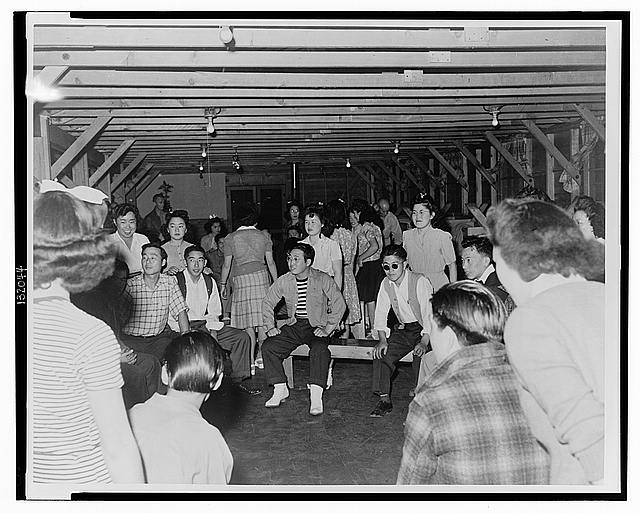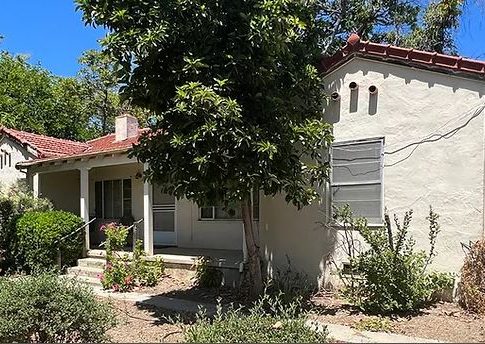
By Calla Carter
AsAm News Intern
During World War II, nearly 120,000 Japanese American people were incarcerated in government-run camps for being of Japanese ancestry. The dominant narrative of their imprisonment aligns with the “model minority” stereotype often associated with Asian immigrants — that they cooperated without protest, and further enlisted in the U.S. Army to prove their patriotism.
Resistance at Tule Lake, a feature-length documentary that premieres tonight on PBS, tells a different story.
Roughly 12,000 Japanese Americans were branded as “disloyals” and imprisoned at the Tule Lake Segregation Center for resisting the government’s mass incarceration efforts. And even at Tule Lake, “they continued to protest in the face of militarized violence,” according to the film’s website.
Director Konrad Aderer learned about this little-known resistance while working on Enemy Alien, his first film, which followed Palestinian activist Farouk Abdel-Muhti, who was among the first wave of Muslim immigrants arrested during the post-9/11 panic. Abdel-Muhti’s resistance and organization of fellow detainees inspired Aderer to incorporate his own family’s history.
LATEST STORIES
Aderer’s grandparents were incarcerated in Topaz War Relocation Center during World War II, and his mother was born at the camp. While Abdel-Muhti’s story parallels that of Aderer’s grandparents in many ways, his resistance did not.
“My grandparents made the best of everything and did what became the dominent narrative – which was how compliant and patriotic the Japanese Americans were,” Aderer told AsAmNews. “[Abdel-Muhti] held hunger strikes and he organized other detainees to send letters out, and get press and to protest. He paid a lot of consequences. He was put in solitary confinement, he was beaten. This was so different from what my grandparents went through.”
Looking for parallels to Abdel-Muhti’s resistance in Japanese American history, Aderer discovered Tule Lake. “The people in Tule Lake did all of these same things as the 9/11 detainee,” he observed. After meeting with former detainees on a 2010 pilgrimage to Tule Lake, where Aderer screened Enemy Alien, he became consumed in research for the next several years, meeting members of the Tule Lake community and shooting footage at pilgrimages.

The development of Resistance at Tule Lake lasted many years, and Aderer began to doubt whether more than 70 years later, unfair detainment and xenophobia would still interest the general public.
“[But] I knew there were still hundreds of thousands of people being detained or arrested or deported each year,” he said. With the divisiveness of the 2016 presidential election came a resurgence of Islamaphobia and some on the far-right proposing another “internment,” which Aderer is quick to relabel as “incarceration.”
Aderer also drew many parallels between the Tule Lake resistance and the DREAMer movement — the fight to protect from deportation approximately 800,000 undocumented immigrants brought to the U.S. as children by paving a path to permanent residency or citizenship.
The DREAMers, Aderer said, are “at the complete mercy of the government, like the Japanese Americans were.” He compares the DREAMers who “come out the shadows and declare who they are” to more than 5,000 people at Tule Lake who renounced their U.S. citizenship, openly protesting when they essentially had no rights.
The parallels allow Aderer to “pick apart this idea of loyalty and belonging, and who deserves citizenship,” he said.
To Aderer, his film portrays “how durable and powerful the human spirit is when pushed in situations that the government will put people in, like detention and deportation. Without weapons, stripped of everything, people take a stand.”
Resistance at Tule Lake premiered last year at CAAMFest and continues to screen at festivals,
schools and community organizations throughout the United States. Its national broadcast premiere is today, May 6 on the WORLD channel at 7pm EST/4pm PST.
AsAmNews has Asian America in its heart. We’re an all-volunteer effort of dedicated staff and interns. Check out our Twitter feed and Facebook page for more content. Please consider interning, joining our staff or submitting a story.








